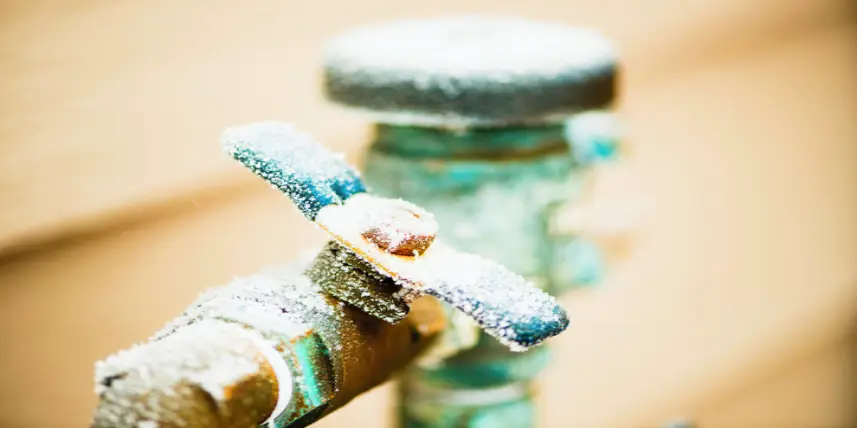
As native Memphians, we all know that winters in our community aren’t typically harsh unless you count the occasional ice storm that sometimes knocks out power for several days. But we digress; our winter months are pretty moderate. Still, winterizing your pipes can protect them from severe damage.
Your next question likely is, “How do I winterize pipes in my house.” Before we answer that, let’s quickly discuss why plumbing winterization is beneficial.
When you winterize your plumbing, you can:
- Increase longevity and operational life
- Prevent corrosion and rust
- Avoid significant pipe damage
- Decrease the chances of pipes freezing
Ready to get winterizing? Our Memphis plumbers are here to impart some knowledge and provide useful plumbing tips to help your plumbing survive winter unscathed.
Keep Water Flowing
Standing water is no friend to your plumbing, especially when the temperature drops. It’s not a myth that turning on your faucets and allowing water to continually flow through the pipes will prevent freezing. This winter plumbing tip is one of the easiest to complete and will go a long way in safeguarding your plumbing.
Employ this winterizing strategy when the temperature outside drops below 30 degrees Fahrenheit. Remember to open the taps and let cool water trickle out. If your pipes have already frozen, the wait-and-see method could be extremely detrimental to your plumbing in the form of burst pipelines. It’s best to contact one of our Memphis plumbers to assist.
Insulate Your Outdoor Pipes
Pipe insulation isn’t a luxury; it’s vital to the health of your plumbing during winter. Exterior plumbing doesn’t need to be at room temperature to continue functioning, but it does require foam insulation to prevent freezing and other serious issues.
Here are a few tips for insulating your pipes:
- Before insulating your pipes, check for visible damage and have it repaired first.
- Don’t leave any gaps between the insulation. Use caulk or electrical tape to seal any gaps and keep pipes as insulated as possible.
- Ensure your home is properly insulated to further enhance pipe health and keep your home’s temperature regulated.
Watch Interior Temperatures
Just because some of your plumbing is housed under sinks doesn’t mean they can’t freeze or become damaged from the lower outside temperatures. You’ll always want to monitor your home’s temperature to prevent problems with all your major systems. If the temperature inside drops below 55 degrees Fahrenheit, you’ll want to turn the heat up to keep the house warm. Trust us, the cost to heat your home is much less than plumbing repairs caused by frozen pipe damage.
Get Warm Air Circulating
One of the reasons it’s crucial to monitor indoor temperatures is that you want the warm air to circulate through your home and keep your pipes heated. Even if you’re planning to take an extended vacation out of town, you’ll want to keep the heat on so that warm air can flow freely. How awful would it be to come home and discover that your plumbing is completely frozen? Definitely not a great start to the holiday season.
Remember, open cabinet doors under sinks to expose them to warm air. This, along with letting your faucets drip, will help you avoid winter-related plumbing issues.
Seal Any Air Leaks
Basements and crawl spaces are notorious for drafts and leaks in windows and hidden seals that let in the frigid air. You may lose an average of 30% of heating and cooling energy when you leave leaks unaddressed. A caulking gun will become your new best friend to eliminate pesky drafts inside your home and fortify your plumbing during the winter.
When Winter Rolls in, So Do We!
You don’t have to be worried about your cooling system in the winter because we’ve got you covered! Our Memphis plumbers have the right tools and industry knowledge to ensure your plumbing is maintained seasonally.
Call us or request a job estimate today!

